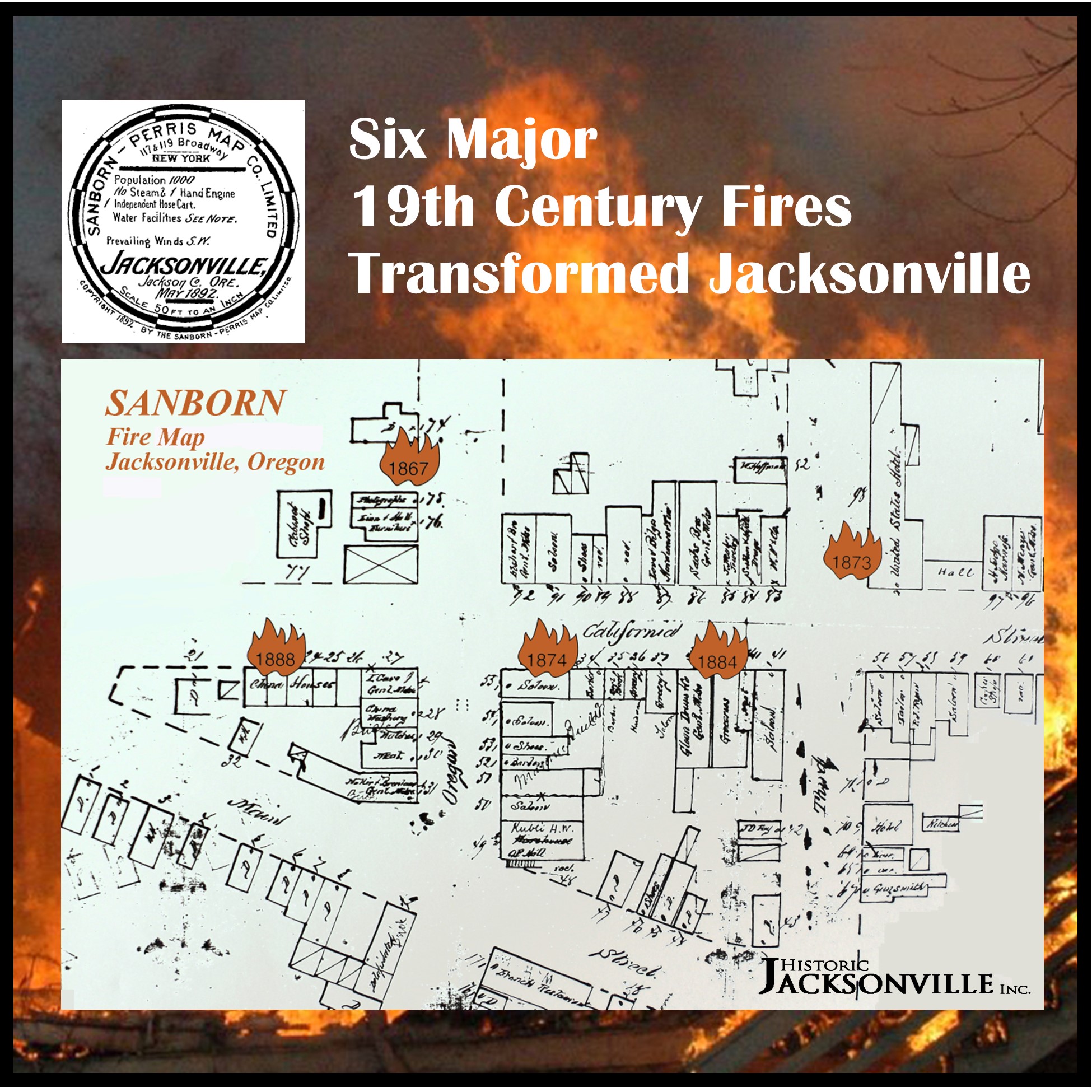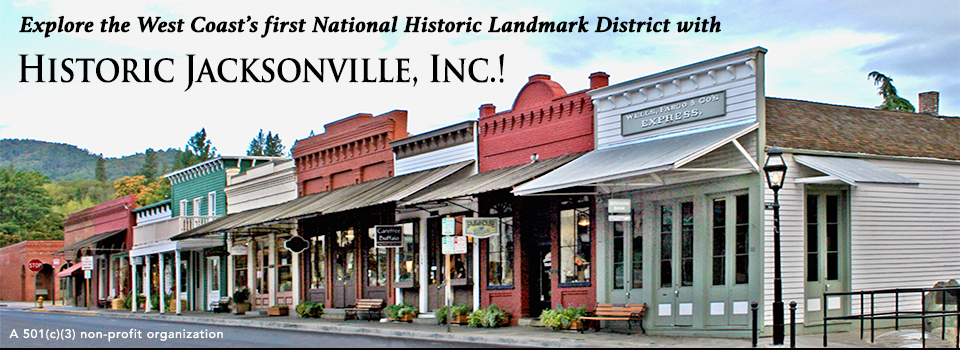
January 12, 2021
As victims of the Alameda fire start to rebuild, we’re reminded of the major 19th Century fires that shaped historic Jacksonville as we know it today. An 1867 kiln fire that began at David Linn’s lumber mill at the corner of California and S. Oregon also destroyed neighboring residences. With only a bucket brigade and a hook and ladder wagon, Jacksonville’s Engine Company No. 1 could do little more than watch. In 1873, a volunteer bucket brigade was outmatched by a fire at the first U.S. Hotel. Within 15 minutes it did $50,000 in damage (equivalent to $1 million today) at a time when few had fire insurance. We don’t believe it was a Fourth of July celebration but in the first week of 1874, 2 blocks at the southeast corner of California and Oregon went up in flames, destroying many of the town’s original wooden buildings including the notorious El Dorado Saloon. Again, the bucket brigade could only watch and help salvage items from the stores. In December 1984, a New Year’s Eve fire that began at the New State Saloon at the corner of California and 3rd streets (now the location of Redmen’s Hall) wiped out a block of businesses, the post office, and 2 homes. By this time Engine Co. No. 1 had a pump wagon, but an inexperienced volunteer forgot to attach a filter. In September 1888, fire again engulfed David Linn’s business at the corner of California and Oregon streets, destroying not only his furniture store and planning mill, but also wiping out most of Jacksonville’s original Main Street business district which had become the 1st Chinatown in Oregon. Although the 1899 Jackson County Jail fire is not considered a major fire, 3 inmates who were lodged in the jail when it burned on July 12th died in the blaze that destroyed the county’s 2nd jail building on this site. One prisoner was due for release the next day. The sheriff was supposed to have been spending the night in the jail, but 2 different versions of his “whereabouts” have him either in a local saloon or enjoying the attractions of a local hotel that accommodated a gentleman’s “needs.”
